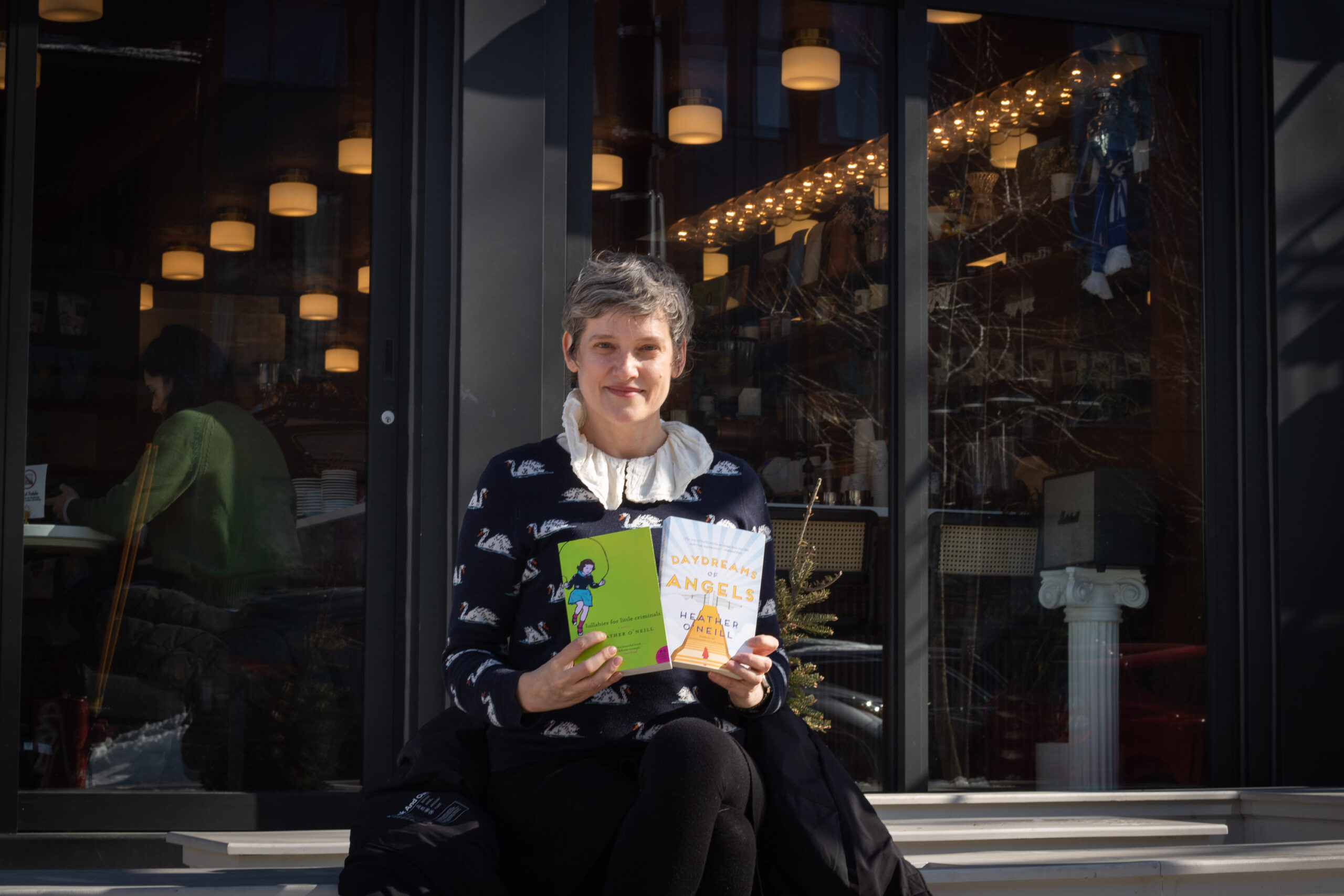The celebrated novelist sat down with our Editor-in-Chief to discuss her published works and an upcoming novel.
Montreal is ripe with celebrated authors, like Leonard Cohen, Mordecai Richler, and Heather O’Neill. On a sunny Tuesday morning in March, following a win on the Canada Reads game show, O’Neill met up with The Concordian to discuss her literary journey.
The Concordian: Thank you again for sitting down with me. Let’s start by learning a little more about you.
Heather O’Neill: I was born here in Montreal and then my parents got a divorce. My mother took me to the American South, which is where she is originally from and I lived there with her for a while. After some years, she decided she didn’t want to be a mother anymore and sent me back to Montreal to live with my father.
TC: I’m so sorry to hear that. Through all that, when did you discover your passion for writing?
H.O.: I remember it started when I was in elementary school. I remember back when I was eight or nine, I got a journal for my birthday. I started journaling and I loved doing that. It was my favorite part of the day, getting back to my journal and describing my day. It was like the journal was the only person on my side. Afterward, in grade five, I had a teacher who was very excited about my writing. I remember she gave me this little folder and she told me to keep everything because she told me I’d be a great writer.
TC: I love that. Going into your young adult life, what was the first major inspiration for your first novel?
H.O.: Funny enough, I was in a workshop at Concordia. I wrote a short story with the characters that ended up in Lullabies for Little Criminals, Baby and Jules. I noticed that story in particular got a lot of attention and seemed to capture the attention of the readers. So I sent it to a magazine and it got published. After it got nominated for the Journey Prize, I told myself, “Okay, I have something here.”
TC: How do you feel now that your written works are now being studied in courses, like an English class that I took at Concordia?
H.O.: It’s funny because it’s just starting to hit me now, that sort of appraisal. As an artist, you don’t have a sense of the outside world. Now, turning 50 this year, I think I am slowly starting to see that impact. I have so many young women writers who have come up to me and told me that they have read my books.
TC: Which of your books do you find people come and talk to you about the most?
H.O.: It’s hard to say, but Lullabies for Little Criminals has been around for the longest. I would say The Lonely Hearts Hotel has really struck a chord in people.
TC: What would your advice be to young writers who are just starting out?
H.O.: I don’t know what exactly my advice would be because a novel is such a strange beast. I think people just get gripped by it and you can’t stop the writing until you finish it. It’s a lot like Narnia, you get into a novel and you don’t know how much time you’ll spend on it. When you finally finish that novel it could’ve been over a span of 10 years or even six months. The madness is real for sure.
TC: What does your writing process look like?
H.O.: I write in a very rough way, where I already have the idea of the novel in my head. It always changes as I go along. When I start the novel, I write the different scenes from different parts of the book to kind of get a feel of how it’s going to look. After that, I piece everything together into a legible book. Then I send it off to my editor and it goes back and forth four to five times.
TC: Do you currently have anything in the works?
H.O.: I have one coming out in September. This novel is my first that is not set in Montreal. It’s set in this little imaginary country and in this country, they base their entire identity on the arts. They have this incredible arts culture, but then they get occupied by another country. It’s sort of how occupying forces first destroy the artists.
Fans have been eagerly awaiting O’Neill’s next novel since her last release in 2022, When We Lost Our Heads. For updates on O’Neill’s newest creation, have a look at her Instagram account, which she shares with her daughter, @oneillreads.
